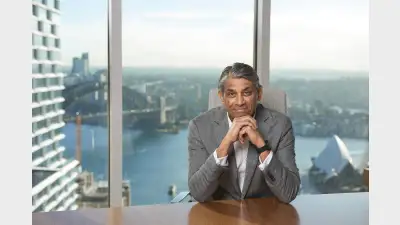Are fund managers abandoning sustainability?



As ESG and sustainable funds continue to suffer outflows and the regulator cracks down on greenwashing, are asset managers becoming nervous about their product range?
Last month, Global X reported that the demand for ESG exchange-traded funds was at the lowest level since 2014. The firm explained: “Despite the undeniable significance of ESG factors in both business practices and personal consumption, investor dollars are not drumming to the same tune. ESG and sustainable investing has taken a back seat and recently experienced a decline in momentum.”
Alongside this, Australian and New Zealand sustainable funds experienced outflows of US$800 million ($1.2 billion) in the second quarter of 2024, according to Morningstar, compared to inflows of US$27 million in the previous quarter.
Product development also “continued on a downward trajectory” with just 77 new launches in the quarter, which was significantly smaller than the 325 sustainable funds that were launched at the same time in 2023.
Dugald Higgins, acting group head of research at Zenith Investment Partners who recently took over the role following Bronwen Moncrieff’s departure, explained the factors driving this shift away from ESG.
Regulation
One key reason is the regulatory uncertainty currently seen in the responsible investing landscape. He said: “Markets (and managers) hate uncertainty. Challenges like evolving disclosure frameworks, greenwash regulations and geopolitical issues make attaining sufficient clarity difficult. Many firms are hesitant to take a strong stance on products until they understand what a ‘new normal’ looks like.”
ASIC stated greenwashing is an enforcement priority for the regulator and it has already taken action against firms like Vanguard and Mercer as well as against superannuation funds.
Last month, Vanguard was penalised $12.9 million by the Federal Court for making false or misleading claims about its ethically conscious fund on its website, in a media release, presentation and YouTube interview.
Meanwhile, Northern Trust Asset Management was fined $29,820 by ASIC to comply with two infringement notices for alleged false and misleading statements about the application of a carbon emissions exclusion screen.
While a proliferation of new ESG and sustainable funds hit the market between 2018 and 2021, Higgins noted, tougher regulations are now prompting some fund managers to reconsider the challenges ahead.
These include managers such as JP Morgan Asset Management (JPMAM) and Schroders that have already made changes to their sustainable ranges.
JPMAM said it will terminate its JPMorgan Sustainable Infrastructure Fund and JPMorgan Sustainable Infrastructure Active ETF (Managed Fund) on 29 August as the fund “failed to gain traction” with the Australian market.
Meanwhile, Schroders announced its own changes to sustainable funds, with the Sustainable Global Core Fund being renamed as the Global Core Fund.
Explaining the change, Schroders said the criteria for sustainable-labelled funds, both in Australia and abroad, had reached “significantly higher standards” since 2020 when the fund was renamed to the Schroder Sustainable Global Core Fund.
Higgins said: “Managers are realising that the journey is more complicated than they thought, and many hurriedly created solutions have turned out not to be fit for purpose. Market evolution works both ways. Many funds are either getting relabelled, restructured or removed altogether. This makes sense as product proliferation often outpaces intelligent design and momentum tends to swing too far ahead and too far behind before reaching a steadier state.”
Meeting stakeholder obligations
This uncertainty was echoed in KPMG’s annual Asset Management CEO Outlook which questioned 125 asset management CEOs globally, including Australia, all of whom have annual revenue of over US$500 million.
Some 62 per cent said they have fully embedded ESG in their business, but nearly two-thirds of respondents said they are worried their stakeholder expectations with regards to ESG will change faster than they can adapt, and more than a quarter fear their tenure as CEO will be threatened if they miss ESG targets.
This is particularly the case for fund managers who have offices in both Australia and the US where ESG has feared a political backlash.
For example, the world’s largest asset manager BlackRock has significantly reduced its support for ESG shareholder proposals despite a previous bold, public commitment by chief executive Larry Fink to ESG. In its 2024 Investment Stewardship Voting Spotlight, the firm said shareholder proposals focused on climate and natural capitals and on company impacts on employees increased 13 per cent year-on-year but "receive low support from shareholders".
"Consistent with last year, we found that most shareholder proposals on climate and natural capital issues (environmental), as well as company impacts on people (social), were overreaching, lacked economic merit, or sought outcomes that were unlikely to promote long-term shareholder value. A significant percentage were focused on business risks that companies already had processes in place to address, making them redundant. As a result, investor support – including BlackRock’s – for such proposals remained low."
Others such as Ninety One and Robeco are moving away from the controversial term of ESG to highlight “transition investing” instead.
Ninety One describes transition investing as “allocations that finance progress towards net zero. It covers investments in industries and infrastructure that are helping the energy transition, as well as targeting high-emitting sectors that require substantial financing to implement their climate strategies”.
KPMG recommended asset managers engage with investors and stakeholders on their ESG needs and expectations, and understand there will be high pressure on them to deliver on ESG promises.
Staffing
Mischa Bennett, managing director at Capital Executive Search, said the downturn in fund launches was occurring simultaneously with a downturn in hiring.
“It feels like the explosion in ESG roles within funds management started six years ago, peaked two to three years ago, and is significantly down. Part of the ESG research role is taking control of the compliance related to ESG reporting – so perhaps this will beef up ESG requirements again, but I’ve not yet seen this.
“I think most funds that felt they needed an ESG research function now have it so I don’t see many more growth in the numbers of ESG people in funds from here.”
Nevertheless, 18 per cent of KPMG respondents said they will be focusing on enhancing their ESG credentials to attract and retain top talent, amid fears of an asset management talent shortage.
This is particularly the case for attracting new graduates, with the younger Gen Z demographic noted for being more environmentally conscious than their older peers who are retiring.
According to the 2023 ASX Investor Study, 35 per cent of next-gen investors aged 18–24 actively invest in ESG principles with interest spread broadly across environment, ethical, corporate and social responsibility and governance. Just over half had bought or sold an investment based on ESG factors in the past 12 months.
Research by Kaizen Recruitment stated a junior ESG analyst can earn $70,000–$90,000, rising to $130,000 once they have five years’ experience.
Bennett said: “The interest is quite high within the junior cohorts regarding ESG and ‘sustainability’ – which is how ESG is badged in corporates. There are a lot of junior candidates that like ‘purpose’ led careers.”
Conclusion
Higgins concluded to remind investors and financial advisers that performance in the sustainability sector is largely cyclical, as is sentiment towards these funds which is expected to see a rebound in the future.
“It’s human nature for sentiment to fluctuate between extremes. The bigger the issue, the bigger the swing. We think it’s no coincidence that when thinking about ‘hype cycles’, sustainability issues are no different. When looking back at the shape of global fund flows, it’s not difficult to draw the conclusion that it feels like sustainable funds are occupying a space in the ‘trough of disillusionment’.
“Transitions are rarely straightforward, and all successes are liable to setbacks. Yes, the current climate presents difficulties for various aspects of funds management, but accepting that we need to ride the cycle is necessary to develop solutions and meet the challenges of the future effectively.”
Recommended for you
Private wealth firm Escala Partners is seeking to become a leading player in the Australian advice landscape, helped by backing from US player Focus Financial.
In this new series in partnership with MFS Investment Management, delve into all things fixed income and discover how you can use the asset class to build better client portfolios. In this Q&A discussion, MFS managing director- head of wholesale distribution James Langlands sits down with Evidentia senior asset consultant Ron Mehmet to discuss fund selection.
ETF providers are considering the phase-out of bank hybrids in their product development plans with billions of fixed-income assets set to seek a new home in the coming years.
Bell Financial Group co-CEO Arnie Selvarajah believes regulation will make the provision of episodic advice easier for consumers and is pivoting the business over the next two years to focus on wealth management.











